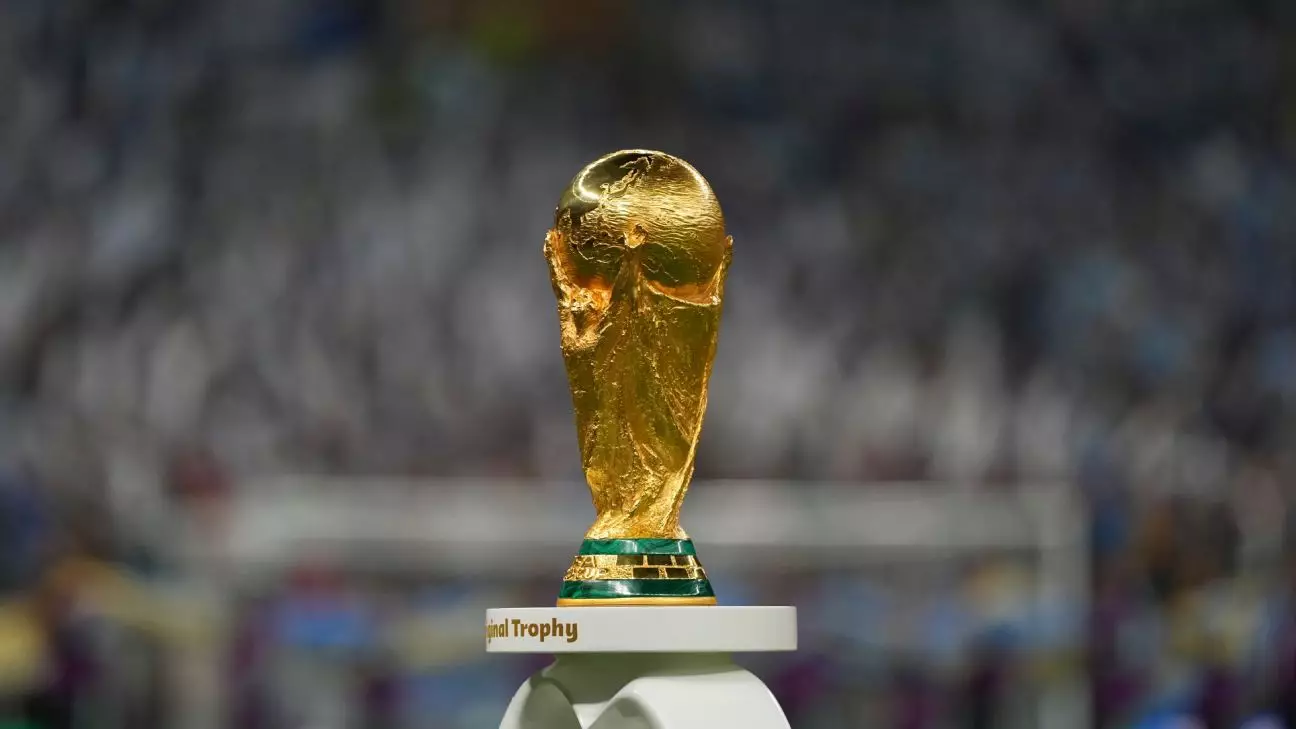As FIFA prepares for the upcoming 2034 World Cup, expected to be hosted in Saudi Arabia, it finds itself entangled in a web of complications and objections from major European leagues, including the prestigious Premier League and LaLiga. The decision to potentially stage the tournament during winter raises significant concerns over the disruption of fixture calendars, player welfare, and the inherent challenges posed by such a shift.
FIFA is set to announce Saudi Arabia as the lone bidder for the men’s World Cup in 2034, a choice that has understandably sparked controversy. Following the decision to host the 2022 World Cup in Qatar during winter months, many critics are apprehensive about whether another mid-season tournament in the Middle East is wise. The FIFA evaluation report, which highlights worrying climate conditions, suggests that the tournament will need to be held between October and April, potentially compromising the traditional June-July timeframe favored by European leagues.
The decision to name Saudi Arabia as the host is not without ramifications. It has been reported that difficulties stemming from the 2022 edition—which included an unprecedented interruption of many domestic seasons—are still fresh in the minds of officials, players, and fans. The ramifications of such decisions extend beyond logistical hurdles and delve deep into issues of player burnout and mental health, a topic that is now garnering increasing attention.
In light of FIFA’s encroachment upon the traditional football calendar, organizations such as FIFPRO Europe—the players’ union—along with various European leagues, have taken the bold step of submitting a legal complaint to the European Commission. The crux of their argument revolves around allegations of FIFA’s monopolistic control over the International Match Calendar, which, they claim, puts both players and leagues at a significant disadvantage.
This legal action aims to address fears that the governing body is prioritizing its profit-making interests over player welfare, especially concerning the increased risk of exhaustion associated with the intensification of the match calendar. The case brings to the forefront a crucial conflict of interest: FIFA operates simultaneously as the competition organizer and governing body, jeopardizing the integrity of the sport and those who play it.
The historical precedents set by the 2022 Qatar World Cup are hard to overlook. Major European leagues had to recalibrate their schedules, extending their seasons and halting play for over a month to accommodate the tournament’s unprecedented winter placement. With a proposed expansion to a 48-team format in 2034, which necessitates a schedule of 104 games, the implications for domestic leagues would be severe.
Experts predict a potential disruption lasting up to seven weeks—an adjustment that would require clubs to release their players for nearly 50 days. This scenario would exacerbate the already tenuous balance that players maintain regarding workload and health. The European Court of Justice (ECJ) has already highlighted past rulings that indicate FIFA must garner consent from both leagues and players before instating significant alterations to the match calendar.
While FIFA asserts that discussions will commence to include all stakeholders in the planning process for the 2034 tournament, skepticism remains rampant. Many leagues and players are searching for assurance that their perspectives will be taken into account amid uncertainties surrounding the approval of such a controversial plan.
The challenge ahead will be to engage in constructive dialogue that genuinely considers the interests of all parties involved. Balancing commercial aspirations with the fundamental need for player well-being and the integrity of league competitions will be no easy task. Moreover, it begs the question of whether FIFA is genuinely committed to creating a sustainable path forward or if its focus remains fixated on maximizing revenue for itself.
As the countdown to Saudi Arabia’s World Cup begins, tensions between FIFA and Europe’s major leagues are reaching a boiling point. With numerous stakeholders involved, finding a resolution that satisfies everyone while maintaining the sport’s essence feels increasingly challenging. The coming years are set to be pivotal, dictating the future of international football and its relationship with domestic leagues amid profound changes on the horizon.

